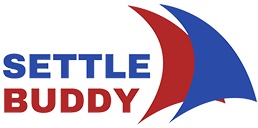How to find temporary accommodation in Canada
Leaving behind your family and friends, packing up and moving your entire life from a place where you lived for a majority of your life to a new country where you barely know anyone is a journey filled with courage and emotions. As you decide to start version 2.0 of your life in a new city far away from home, planning for your career, finances, and some of the basic necessities such as accommodation is essential.

Leaving behind your family and friends, packing up and moving your entire life from a place where you lived for a majority of your life to a new country where you barely know anyone is a journey filled with courage and emotions. As you decide to start version 2.0 of your life in a new city far away from home, planning for your career, finances, and some of the basic necessities such as accommodation is essential.
Depending on the Canadian city you are moving to, it can take a while to find more permanent, long-term accommodation. That’s why most newcomers, when they first land in Canada, book temporary accommodation: hotel, hostel, or an apartment, condo or house for a couple of weeks or even the first few months.
What to consider while finding temporary accommodation in Canada
Length of stay, location, and budget — these are some of the important factors that people take into consideration while booking their stay for the first few days, weeks or months in Canada.
Here are 4 things you should include in your search for a place to rent:
1. Online reviews and ratings:
A majority of newcomers book their short-term stay prior to landing in Canada, which means that there’s limited or no scope to inspect the place in-person before booking. In this scenario, it’s a good to look at online reviews and ratings before finalizing the place. Some websites enable communication with the hosts or owners before booking, so use that opportunity to ask questions and clear any doubts. Keep an eye out for issues pertaining to bed bugs, bad neighbourhoods, cases of theft, cleanliness, etc.
2. Time of booking:
Timing matters and accommodation prices will fluctuate based on demand and supply. So, it’s a good idea to book your stay well ahead of your travel date. For instance, spring-summer is a popular time for newcomers to move to Canada. Since there is an increase in demand around this time of the year (months of March to August), accommodation costs rise, and there may be limited options available that meet all your criteria. Booking in advance will help you find more options within your budget.
3. Location or neighbourhood:
One of the main goals for most newcomers is to find employment upon landing. An accommodation that’s located away from the city centre is usually cheaper, more affordable, and may fit your budget. However, do take into consideration travel time and transportation costs to the city before selecting a place as most offices and networking events are downtown or closer to the city centre.
- To find out more about specific neighbourhoods while still in your home country, you can speak to friends and family in Canada or check out forums like Reddit and Quora.
- Check your options closer to the city centre or in the neighbourhoods where you are likely to find employment and compare costs to see if the accommodation costs offset the cost of travel to and from.
- One of the advantages of initially living in any city centre or downtown neighbourhood is having access to essential stores, services, and transport. It also gives you the opportunity to explore neighbourhoods without a car and is also a good way to get a sense of where you would like to live permanently.
4. Budget:
This is such an important factor when choosing accommodation, and almost all websites offer an option to filter results based on budget. While accommodation costs will most likely constitute a majority portion of your expenses, you can always find something to suit every budget, if you know where to look. Many newcomers depend on word of mouth or are aware of only a couple of popular sites for booking accommodation, which limits their options. Doing thorough research by yourself on multiple websites will help you understand what’s available within your budget and even compare prices before you book — thus ensuring that you’re getting a good deal.
Learn more about the process of renting and buying property in Canada by downloading the Housing Guide by Arrive. Whether you’re looking to find temporary accommodation for your first few weeks or if you’re looking for a more permanent, long-term option, this guide will provide resources, tips, and advice to ensure you are making the right decisions on housing for you and your family.
Keep track of all your addresses
As a newcomer in Canada, you may have to complete certain landing formalities: get a provincial identification card, driving license, provincial insurance, enrol your kids in school, get a phone plan, etc. For this, you will be required to provide your current address and/or a list of all the previous addresses where you resided. Therefore, it’s a good idea to keep track of them.
Finding a good deal on accommodation takes a lot of research so it’s advisable to start early. Since this is the first place where you will be living as a newcomer in Canada, it can provide insight into typical Canadian homes and be a stepping stone in finalizing your first permanent accommodation in Canada.
Looking for tips on finding accommodation in Toronto? Read our article on how to find good apartments to rent in Toronto.
Research and the right knowledge can help you adapt faster and smoothly transition to Canadian life. Check out the Daily Life in Canada blogs on Arrive, which are carefully crafted to educate and prepare newcomers, like yourself, for the next phase of their lives in Canada.
